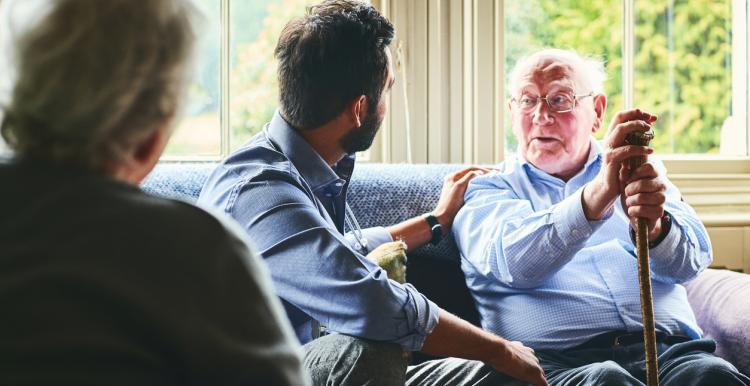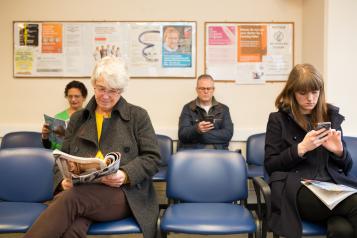New support for carers when making difficult decisions for people with dementia and Coronavirus

Dementia is the most common underlying condition in people who die with Coronavirus (a quarter of Coronavirus deaths have been people living with dementia). People with dementia and Coronavirus often experience a sudden deterioration and respiratory failure, and the nature of dementia also means that many people with the disease lack the capacity to make their own care choices.
During the pandemic, researchers have observed the challenges to carers who can’t be with their loved one in person due to visiting restrictions and having to social distance or shield themselves. This often means that they have had to make quick decisions over the phone with a healthcare professional they have never met about the care and interventions their loved one receives.
The new guide which was developed with families of loved ones who have dementia is funded by an Economic and Social Research Council Coronavirus grant and supported by end of life care charity Marie Curie, Alzheimer’s Society and Dementia UK. It is a free downloadable document that helps carers work through situations, medical and legal jargon so they can make informed decisions quickly under stressful circumstances.
This includes do not resuscitate orders, legal issues like power of attorney, and ensuring that health and social care professionals understand what is important to the person they are caring for when that patient’s loved ones can’t be by their side.
The research team hopes that the new guide will also ease the emotional burden that families can experience and help resolve any feelings of uncertainty about the decisions they have made for their loved ones.
You can download the guide before and find out more about the development of the guide on the University College London website.


